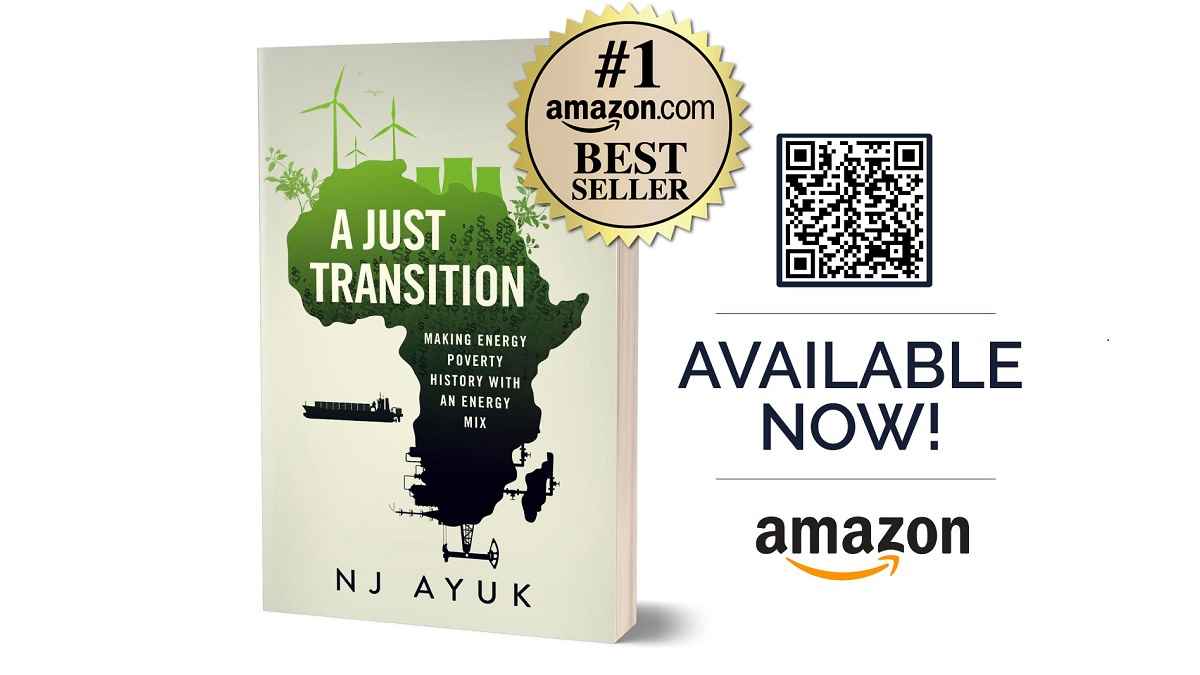NJ Ayuk’s most recent publication, A Just Transition: Making Energy Poverty History with an Energy Mix, has debuted as a #1 bestseller on Amazon’s US store
JOHANNESBURG, South Africa, March 9, 2023/APO Group/ —
Following its release on Wednesday 8 March, NJ Ayuk’s most recent publication, A Just Transition: Making Energy Poverty History with an Energy Mix, has debuted as the #1 bestselling book on Amazon’s U.S. store, a testament to its significance in the current energy transition climate. Representing an in-depth analysis of Africa’s energy sector and the threat an immediate transition to renewables poses on the continent’s ability to develop, reaching bestseller status speaks to the value the book holds.
The release of the book follows years of research and analysis, as well as meetings with prominent stakeholders, with the end product shedding light on the sobering reality that is unfolding in Africa. The bestselling publication reaffirms what African stakeholders believe is the right way to transition to a cleaner energy future. Rather than abandon the very resources that serve as the solution to developing, industrializing and electrifying the continent, the book brings attention to a different approach: an African approach.
By providing key insight into the disastrous impacts transitioning away from oil and gas will have on the continent, the book offers a drill-focused approach, essentially defending the continent’s right to develop and utilize its oil and gas resources. By drawing attention to the need to end resource nationalism as well as critical role large-scale oil and gas developments such as the East African Crude Oil Pipeline, Mozambique’s three sizeable Liquefied Natural Gas (LNG) developments and South Africa’s natural gas projects, to name a few, will play in alleviating energy poverty while increasing the supply of clean energy, the book makes a strong case for what Africa needs to develop and mitigate climate change.
At a time when African countries have aligned their policies to attract more investment into upcoming oil and gas developments, world leaders continue to call for the end of oil and gas utilization. For Africa, developing oil and gas is no longer an interesting prospect, but rather, it has turned into a critical solution for developing economies. Across the continent projects continue to take off. These include Senegal and Mauritania’s Greater Tortue Ahemyim development; Nigeria’s floating LNG train; Uganda’s Lake Albert development; Namibia’s trifecta of oil discoveries and many more. If these projects were to end, what chance does the continent have to make energy poverty history?
Rather than place oil and gas stakeholders against environmentalists, a trend which continues to be done by world leaders, the book posits a collaborative approach to addressing dual challenges of energy poverty and climate change in Africa, making clear the value of cooperation among energy players and environmentalists alike. Rather than picking sides, Ayuk takes on a new approach to the climate debate, introducing the concept of integration and cooperation above opposition.
Additionally, the book makes clear the need for an energy mix-approach. For Africa, adopting an energy mix represents the only and best method of making energy poverty history while addressing climate change concerns. In addition to over 125 billion barrels of crude oil reserves and 620 trillion cubic feet of natural gas, Africa holds significant renewable energy potential, and energy stakeholders are already working towards capitalizing on these resources. In this area, the book identifies a particularly interesting and highly lucrative space: green hydrogen. While global markets begin to turn their attention to global hydrogen, Africa’s untapped renewable energy resources and position as a future green hydrogen hub have made it a top investment destination, however capital remains slow in this area.
The book points to this very notion, emphasizing that a Western idea of the energy transition will do more harm than good in Africa
As such, the book introduces a key solution to raising the funds needed to develop this sector: oil and gas. If Africa immediately transitions away from these resources, how will the continent finance its future? The book points to this very notion, emphasizing that a Western idea of the energy transition will do more harm than good in Africa: that a rushed transition will be even more disastrous; and that relying on foreign aid, rather than developing resources, will cause long-term harm, preventing any meaningful economic progress from taking place.
There is still time to secure your copy of A Just Transition: Making Energy Poverty History with an Energy Mix. Purchase your copy on Amazon at https://apo-opa.info/3ynv5Ev
Distributed by APO Group on behalf of African Energy Chamber.
